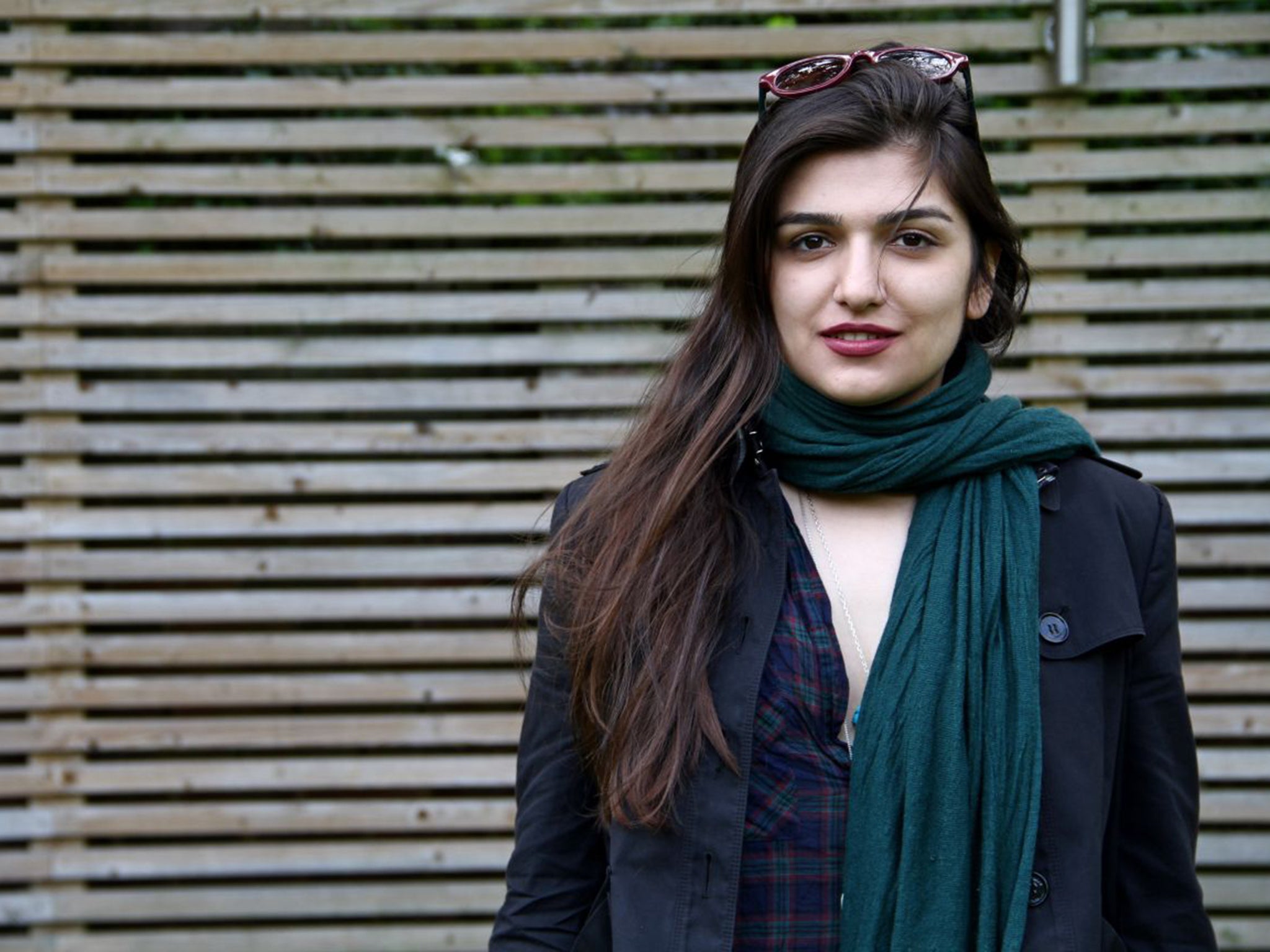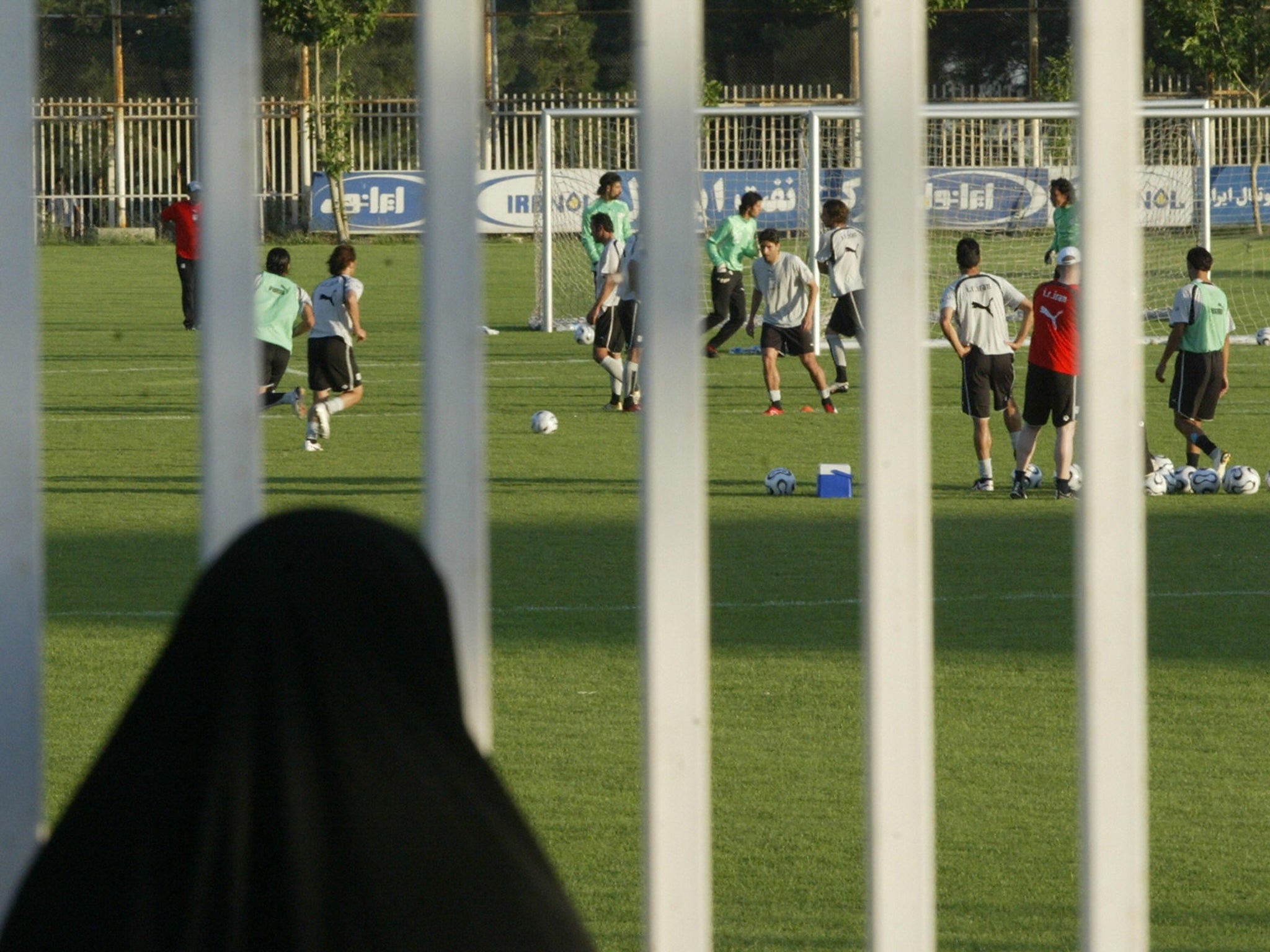Iran allows women into sports stadiums, but not for anything 'too masculine'
Ghoncheh Gavani has recently been released after being arrested last year for protesting at an international volleyball game

Iran has said that it will permit female fans to attend certain sporting events, overturning a long-standing ban that had prevented them from entering stadiums to watch matches attended by men.
However, the new policy will exclude some “masculine” sports, such as wrestling or swimming.
Women are likely to be assigned to particular sections of stadiums, while mixed seating will be available for families.
Abdolhamid Ahmad, the deputy sports minister, called for a new atmosphere in stadiums, which many Iranians consider too rowdy and “not Islamic enough” for women.

“Stadiums must become family-orientated, and the atmosphere there must be softened,” he said.
He added that there were some sports that women were not interested in, “nor is there attendance, possible, because these sports are for men.”
He did not specify which particular sports he was referring to.
Ghoncheh Ghavani, a female Iranian-British activist who was arrested after trying to attend a men’s volleyball match in June, had charges against her dismissed last week after the law was lifted.
Ghavami, who spent five months in jail before being released on bail, took part in a protest at an international match between Iran and Italy demanding to be allowed to watch the game.
In reaction to her detention, the international volleyball federation said that it would not allow Iran to host international events while women were barred from stadiums.
Ghavami, speaking to the Observer, welcomed the news: “Although this proposal is likely to be enforced with some limitations in the beginning, fortunately the issue of women demanding to be allowed in stadiums has gained much public support in the country thanks to the efforts of women’s rights activists in the past ten years.
“The new government has supported the band to be lifted but we want to sure there will be a guarantee women will be allowed to attend all sporting events in the future.”
The decision is a significant victory for President Hassan Rouhani, who has been pushing to enable Iranians to have more personal freedoms.
The official announcement of the change, although confirmed by Iran’s National Security Council two weeks ago, seems to have been delayed to roughly coincide with Iran reaching an agreement with the United States and five other countries on the parameters for an accord on Iran’s nuclear powers.
Rouhani’s vice president for women and family affairs, Shahindokht Mowlaverdi, welcomed Saturday’s news in a tweet:
“This proposal is designed according to our culture, social and religious sensibilities and for certain sports which are exclusive to men, families [and women] cannot attend matches.”
The issue was raised in the 2006 film Offside, made by prominent Iranian director Jafar Panahi. It featured a group of girls attempting to get into a World Cup Qualifying match and was nominated in the official selection for the 2006 New York and Toronto Film Festivals. Its screening was banned in Iran.
Iranian women are allowed to engage in a variety of sports, ranging from martial arts to car rallies as long they wear a hijab.
But they are not permitted to do certain sports in public where men might be able to watch, such as swimming.
The mandatory hijab has caused problems in the past. In 2011, Iran’s women’s football team was banned from an Olympic qualifier after Fifa ruled that their full-body strip broke the organisations rules.
Efforts to allow women to watch sports began under the rule of Mahmoud Ahmadinejad but hit a gridlock when a group of hardline Iranian MPs and influential clerics objected.
Last year Fetemeh Alia, a female MP, was quoted as saying last year that women are for “taking care of babies and husband, not watching volleyball.”
Join our commenting forum
Join thought-provoking conversations, follow other Independent readers and see their replies
Comments